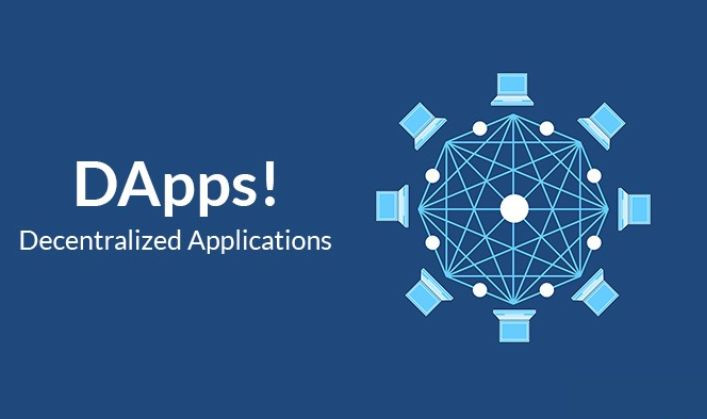7 November 2025
Understanding Decentralized Applications (DApps) and Their Implications
The blockchain revolution has completely changed how we use technology and do transactions. Imagine Decentralized Applications (DApps) as the heroes of this change, using blockchain to give us super secure and transparent ways to interact with tech. These apps put us in control, unlike before. They're like a breath of fresh air for industries, promising better security, honesty, and freedom for users. So, these DApps aren't just tech lingo; they're like the cool sidekicks changing industries and making our digital lives safer and more awesome.
Bybit offer: Deposit $50, and GET 10 USDT (withdrawable)!
Defining Decentralized Applications
Think of Decentralized Applications (DApps) as tech wizards running on a special network. Unlike regular apps that rely on one big computer, DApps spread their magic across lots of computers using blockchain. This makes them super secure and hard to mess with. They're like a team of friends, working together without a bossy leader. This setup stops any one person from having too much power, which is great for keeping your info safe and sound. So, DApps are like the superheroes of apps, protecting your data and giving you more control.
Also read: What Is Decentralized Finance (DeFi): A Comprehensive Overview
Key Characteristics of DApps
1. Decentralization: As the name suggests, DApps are inherently decentralized, meaning they are not controlled by any single authority. This feature eliminates the need for intermediaries, fostering a trustless environment where transactions are verified by consensus algorithms.
2. Open Source Code: DApps typically have their source code open and accessible to the public. This transparency allows developers to scrutinize the code for security vulnerabilities and contribute to its improvement, leading to a collaborative and robust ecosystem.
3. Data Integrity: DApps leverage the immutability of blockchain technology to ensure data integrity. Once data is recorded on the blockchain, it becomes virtually impossible to alter, providing a tamper-proof and auditable record of transactions.
4. Token Integration: Many DApps incorporate native tokens, which are digital assets running on the blockchain. These tokens can serve various purposes within the application, such as facilitating transactions, enabling access to certain features, or representing ownership of digital assets.
5. Consensus Mechanisms: DApps employ consensus mechanisms, such as Proof of Work (PoW) or Proof of Stake (PoS), to validate and verify transactions on the blockchain. These mechanisms ensure agreement among network participants and prevent fraudulent activities.
Benefits of DApps
1. Enhanced Security: The decentralized nature of DApps reduces the risk of a single point of failure, making them more resilient against hacking attempts and cyberattacks. Additionally, the use of cryptography and consensus mechanisms further enhances security.
2. Transparency: DApps operate on public blockchains, enabling users to trace and verify transactions in real time. This transparency fosters trust among participants and minimizes the potential for fraud.
3. Reduced Intermediaries: By eliminating intermediaries like banks or payment processors, DApps streamline processes and reduce transaction fees. This can be particularly impactful for cross-border transactions and financial inclusion in underserved regions.
4. User Autonomy: Users have greater control over their data and digital assets within DApps. They can interact with the application without surrendering their personal information to centralized entities.
5. Innovation and Decentralization: DApps encourage innovation by allowing developers to create applications without seeking approval from central authorities. This democratization of application development promotes a diverse and competitive landscape.
Applications of DApps
1. Finance and DeFi: Decentralized Finance (DeFi) has emerged as a prominent use case for DApps. DeFi platforms enable users to engage in lending, borrowing, trading, and earning interest on cryptocurrencies without relying on traditional financial institutions.
2. Gaming: DApps have disrupted the gaming industry by enabling true ownership of in-game assets through blockchain tokens. This ownership can be transferred and traded across different games, fostering a new economy within the gaming world.
3. Supply Chain Management: DApps are revolutionizing supply chain transparency by tracking the movement of goods on the blockchain. This ensures the authenticity and origin of products, reducing counterfeiting and enhancing consumer trust.
4. Identity Management: DApps offer a more secure and privacy-conscious approach to identity management. Users can control their personal data and share it only when necessary, mitigating risks associated with centralized databases.
5. Social Networks: Decentralized social networks aim to give users control over their data and content. Users are rewarded for their contributions, fostering a more equitable distribution of value compared to traditional social media platforms.
Conclusion
Decentralized Applications (DApps) shine as guardians of security, transparency, and empowerment. These tech wizards, united by blockchain's magic, democratize industries and offer us safer, freer digital lives. With their decentralized nature, open-source spirit, and unwavering data integrity, DApps stand as beacons of innovation. They redefine finance, gaming, supply chains, and more, championing autonomy and trust. As DApps continue to reshape the digital landscape, their promise of a decentralized, secure, and equitable future remains undeniably captivating.
Disclaimer: The author’s thoughts and comments are solely for educational reasons and informative purposes only. They do not represent financial, investment, or other advice.






